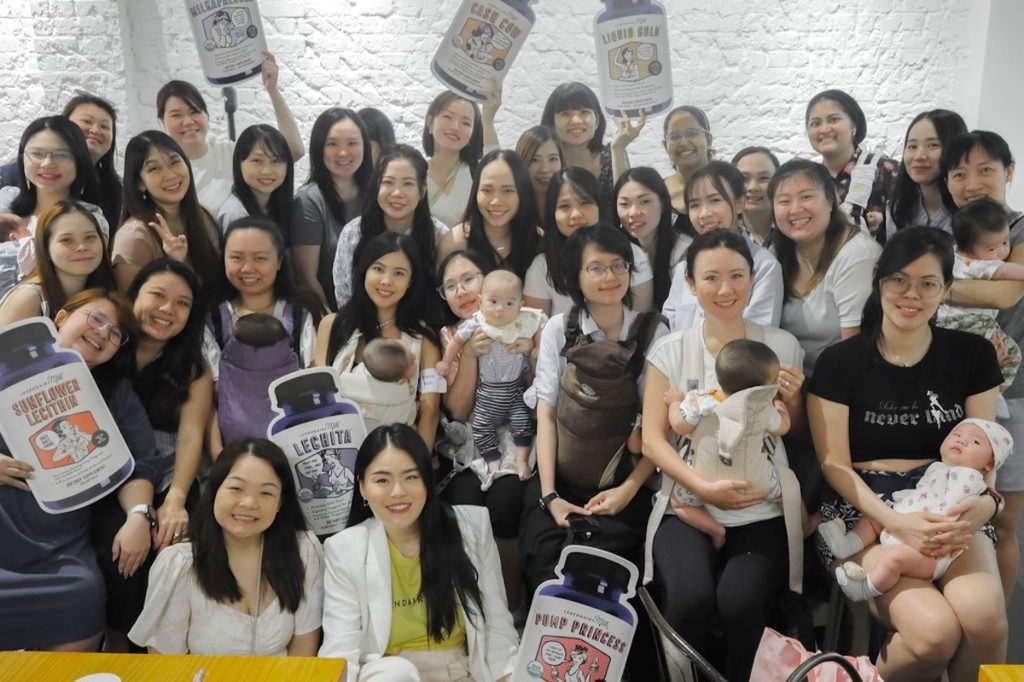Wondering what the best foods are to eat during your breastfeeding journey? Learn about the breastfeeding nutrition guidelines from our experts. These include alcohol and caffeine limitations, and what to eat after confinement from both evidence-based scientific and traditional Chinese medicine perspectives.
The Experts

Eunice Tan is an Accredited Dietitian of Singapore, certified by the Singapore Nutrition and Dietetics Association. She is also a Member of the Singapore Nutrition and Dietetics Association and the Malaysian Dietitian Association. Previously a Clinical Dietitian for two years, she has been passionate about how food plays a role in fertility, pregnancy and postpartum. She reviews every fusion and traditional confinement meal for Tian Wei Signature, as well as the lactation meal catering service ReLacto. Hence, mums can have a well-balanced and nourishing diet to support their postpartum recovery and lactation.
Yen Lim, the daughter of Chien Chi Tow’s founder, founded Madam Partum in 2017 to provide TCM care pre- and postpartum. She relentlessly researched TCM massage techniques and herb knowledge to tailor-make services that boost new mums’ recovery. This helped her build the perfect sanctuary for mums, providing care, relief, education and awareness. Madam Partum has also developed a complete TCM programme to make mums well.
Breastfeeding Nutrition Guidelines
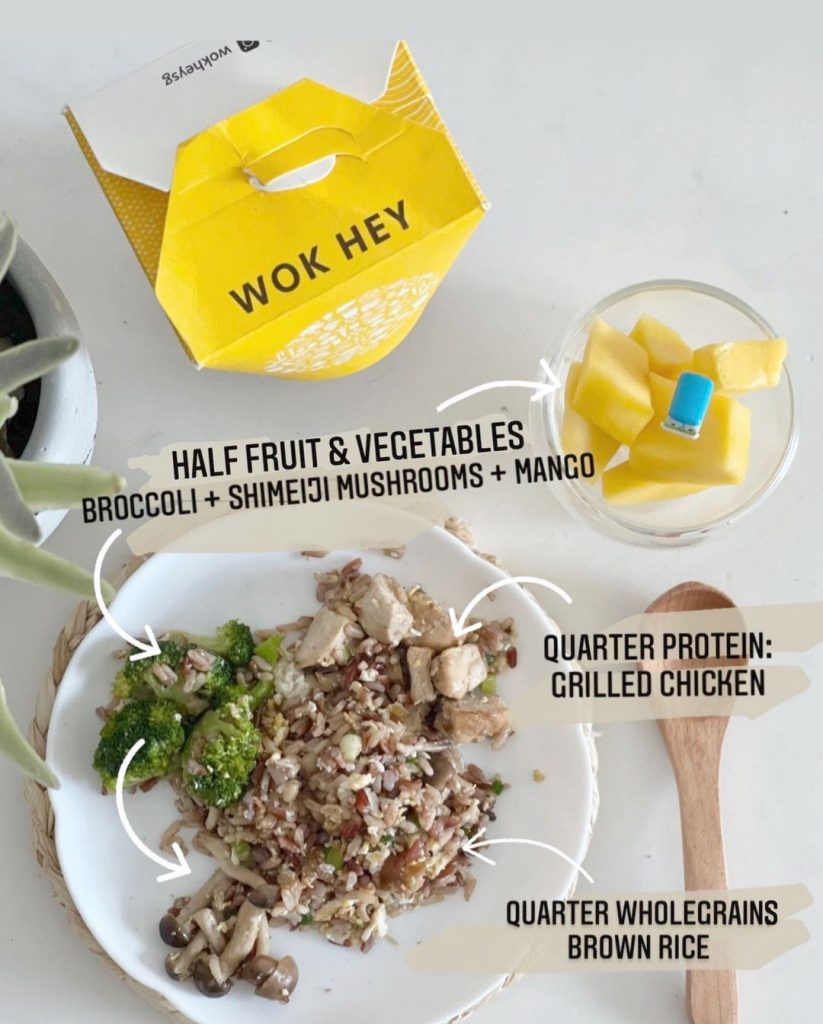
Both Eunice and Yen agree that it’s best to have a wide variety of grains, fruits, vegetables, poultry, meat, fish and healthy fats in a day for optimal breastfeeding nutrition. Nursing mums will need 1,800 to 2,700 calories a day. The Health Promotion Board’s My Healthy Plate recommends filling half a plate with fruits and vegetables, and a quarter each of proteins and grains. For the first six months postpartum, mothers should also have an additional 20g of protein. Choose foods high in unsaturated or healthy fats like nuts and seeds, salmon, avocados and olives. Vegetarian options include soy milk, tofu, nuts, and beans. Try not to have less than 1,800 calories as your milk supply might be at risk.
Post-Confinement Breastfeeding Nutrition
Choose Nutrient Dense Food
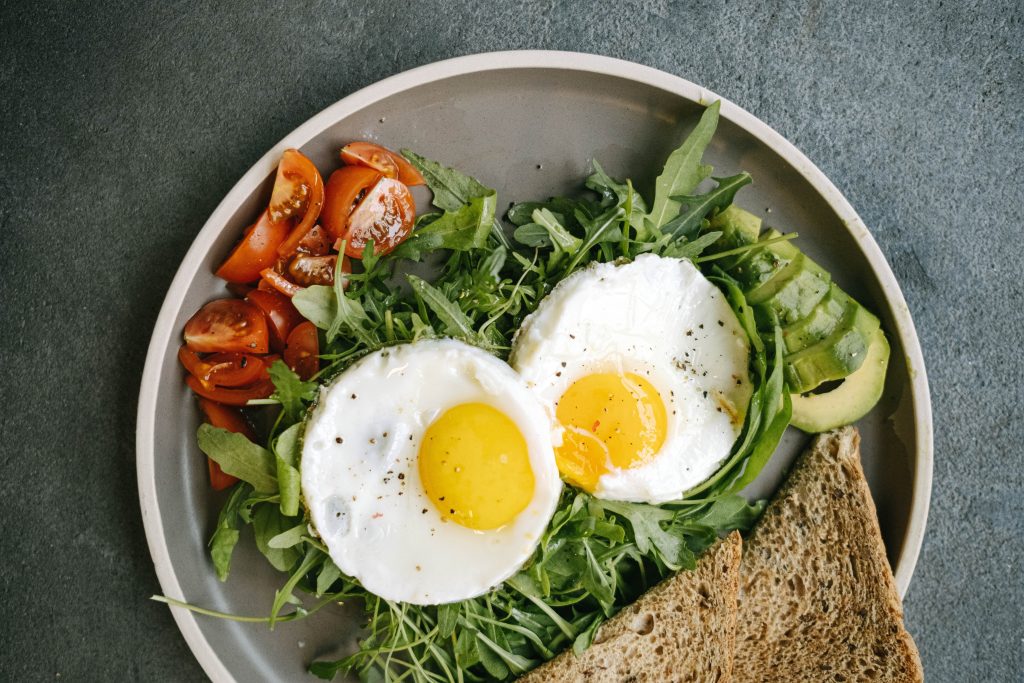
After the first 28 days of eating confinement food, mums might be tempted to revert back to their favourite foods. However, the nutrient content of your breast milk, Eunice says, “depends on how well you’re eating.” Make sure to have foods rich in Vitamin A and D, choline, iodine and Omega-3 DHA, as your intake can affect how much is present in your breast milk. Great sources of vitamin A, important for vision, include pumpkins, carrots and goji berries, while vitamin D-rich foods include fortified milk and soy, mushrooms, eggs and salmon.
Additionally, choline, mainly from eggs, is important for the brain. Just two eggs a day has more than 50 per cent of your daily requirements when nursing. Iodine, found in fish and seafood, helps your baby’s brain development and the thyroid gland’s hormone regulation. Finally, Omega-3 DHA is essential for cognitive function and vision acuity, so eat more salmon, blue hake, shrimp and fortified eggs. Eunice adds, “Do not get me wrong, regardless of what you eat, your breast milk will always still be the best and most nourishing for your baby. But I want mummies to understand the connection between food, breast milk, nutrition levels and what they can do!” Aside from these, Yen advises, “Do avoid processed food and food that are high in sugar content and high in saturated fats.”
Hydrate, Avoid Alcohol and Limit Caffeine

Equally important is staying hydrated. Both Eunice and Yen recommend drinking six to eight glasses of fluids per day or about 1.5 to 2 litres. Eunice explains, “Being hydrated is important to support breastfeeding, prevent constipation and other bodily functions.” Fluids can include water, soup, red dates tea or Milo. Yen advises to drink to thirst, as milk synthesis is by supply and demand and drinking too much may not mean you produce more milk.
While it’s best to avoid alcohol, one standard drink a day is fine, but mummies should wait three to four hours before nursing again. A standard drink is about 150ml of wine with 12 per cent alcohol or 350ml of beer with 5 per cent alcohol. Both Yen and Eunice also agree that nursing mums can safely drink 200mg of caffeine a day, or a large 700ml cup of bubble tea or one to two cups of coffee.
Supplement if Necessary
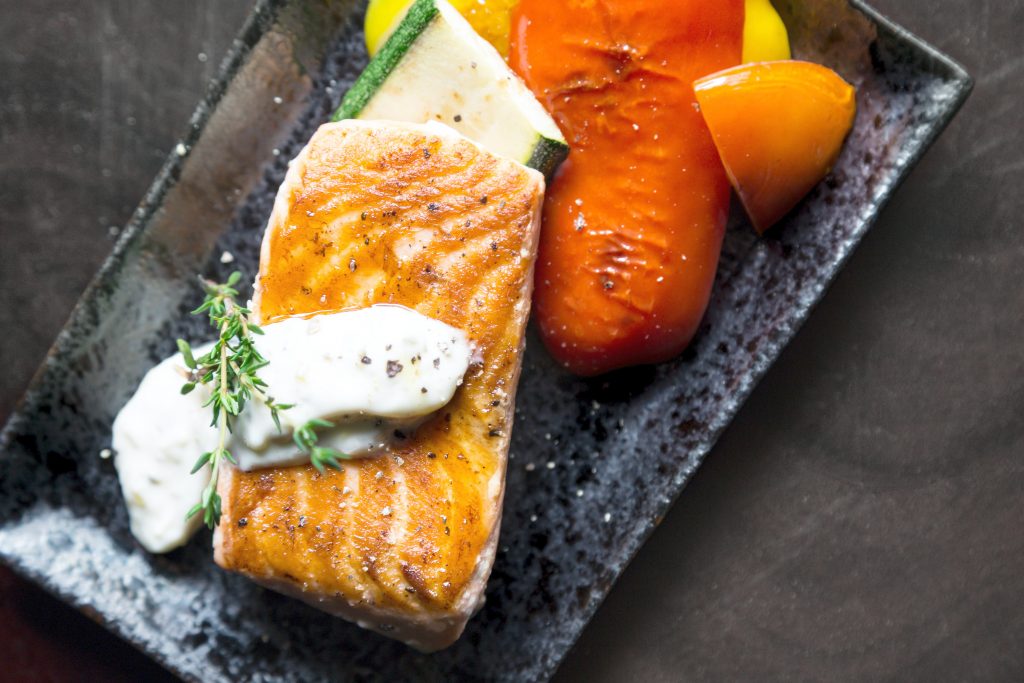
As for supplements, Eunice recommends postpartum mums to take Omega-3 DHA and Vitamin D. A supplement may help mums having less than two to three servings of Omega-3 DHA rich fish in a week. Consider taking a Vitamin D supplement if you’re mostly indoors, or wear sunscreen when outside to prevent skin cancer. This is especially important if you lack Vitamin D in your diet. Eunice adds, “However, it’s always a good idea to speak to your doctor before initiating any supplements during postpartum. Doing blood work just to check your levels before starting is always a good idea to avoid toxicity or side effects from over supplementation.” Equally vital is getting enough calcium, as your baby gets her calcium from you, and this may affect your bone density.
Baby Reflux - What to Do and Food to Avoid

Eunice says that a mum’s food rarely causes her baby’s reflux. Rather, she says, “Reflux happens because babies are on a liquid diet, have a short oesophagus (the tube from the mouth to the stomach) and spend a lot of time lying down. Many times the muscle between the stomach and oesophagus which prevents backflow and reflux may not be fully developed yet. Therefore, occasional reflux is inevitable.” As babies develop stronger sphincters, they should have lesser occurrences of reflux.
To reduce reflux, ensure your baby is latching upright in the koala position, or in a sling. Otherwise, try smaller feeds with shorter intervals, or larger feeds over longer intervals. Alternatively, feed your baby on one side, burp your baby and keep her upright for half an hour after feeding. Consult your paediatrician if your baby has poor weight gain and continues spitting up. She adds, “Seek professional advice from your healthcare team before restricting or eliminating any foods.” From a TCM perspective, reduce dairy products, acidic foods and excessive amounts of caffeine. These include milk and cheese, citrus foods, spicy and carbonated drinks.
Nutritious Snacks
Some great healthy snacks include mixed nuts with yoghurt. Eunice says, “It is nutrient dense, with healthy fats, selenium, magnesium, calcium and prebiotics!” Another alternative is overnight oats with soy or dairy milk with nuts or seeds. Top this up with fruit, so it’s high in fibre, Omega-3, monounsaturated fat and vitamin C. Otherwise, have palm dates, apple or banana slices with a nut spread.
TCM Guidelines for Breastfeeding Nutrition
Even after confinement, Yen says, “Breastfeeding mothers should avoid spicy and stimulating food such as mala, processed food, deep fried and greasy foods. Lastly, avoid eating foods that are kept cold and chilled in the fridge. We recommend bringing the fruits/food out from the fridge 30mins prior to consumption, to allow it to be brought to room temperature.” Try to refrain from eating cold food for as long as you intend to breastfeed.
Reducing Milk Supply
While it’s not scientifically proven, Eunice says many mothers avoid cabbage. Cold cabbage helps soothe breast engorgement and mastitis, and eating it may cause your breast milk to dip. Hence, it may be a good idea to limit your intake of cabbage if you notice your milk supply being affected. Otherwise, Eunice says that mummies need not avoid certain foods while breastfeeding. From a TCM perspective, Yen says that chives, sanzha or hawthorn and malt can reduce supply.
Breastfeeding Nutrition to Increase Milk Supply
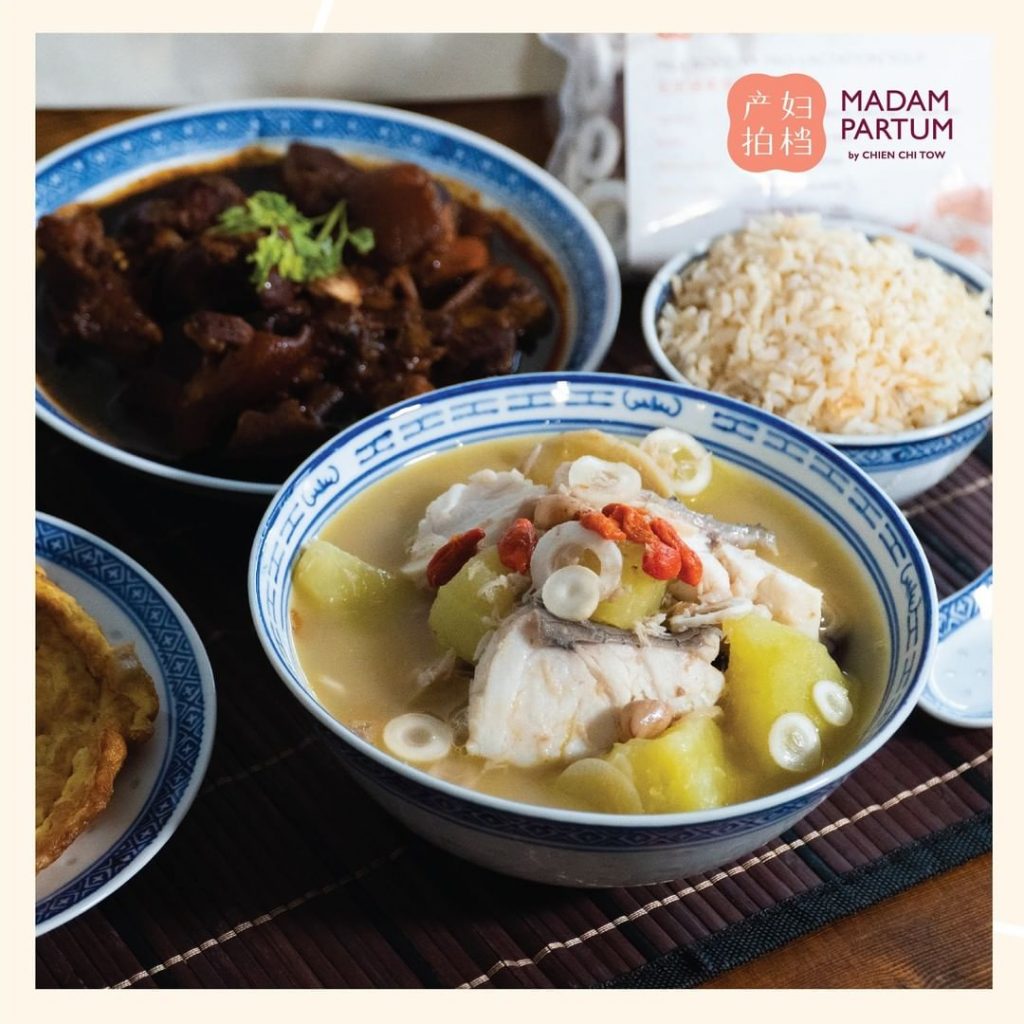
Eunice recommends green papaya, garlic, ginger, fenugreek and fennel seeds to increase milk supply. She says mums can easily obtain and incorporate these into their diet in Singapore. With more extensive research done on these ingredients, evidence says that these may be helpful and safe for some mothers to improve their milk supply. Other foods that anecdotal evidence has shown to improve milk supply include avocados, oatmeal, salmon, and almonds.
According to TCM, Yen says, “Mothers experience low milk supply due to poor Qi and blood circulation in her body constitution. Hence we do recommend mothers to drink soups cooked with Chinese TCM herbs daily to help nourish and boost their energy and help to increase their milk supply naturally.” One popular ingredient is the pro-lactation rice paper pith. When cooked together with peanuts, red dates, wolfberries, dried ginger, green papaya and fish, it can help increase milk supply.ase
The Science Behind Galactagogues
Two galactagogues with more studies are fenugreek and fennel. Since the mammary glands in the breast are modified sweat glands, consuming fenugreek tends to increase sweat production. Hence, this increases the amount of breast milk. Consuming too much fenugreek may cause low blood sugar levels in mummies with diabetes. On the other hand, fennel influences prolactin secretion, increasing prolactin and breast milk production. Lactation cookies or muffins are rich in galactagogues like brewer’s yeast and oatmeal, among many others, and can boost mums’ oxytocin and prolactin levels. While evidence is anecdotal with no formal studies, they’re generally safe to consume in moderation. As mums are usually happy and relaxed when eating these, Yen suggests that their moods may also have boosted their results.
Relevant Reads: Breastfeeding










